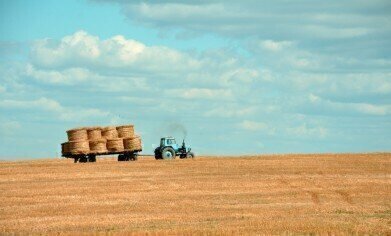Air Clean Up
What Is the ‘Single Biggest Cause’ of Air Pollution in Europe?
Jun 21 2016
If you were asked what the single biggest contributing factor to air pollution in Europe was, you would be forgiven for mentioning the numerous coal- and gas-fired power generators across the continent which spew out tonnes of carbon on a daily basis.
Perhaps you might point to the ever-increasing number of vehicles on our roads, especially in the wake of the VW diesel scandal, as a prime suspect in the creation of air pollution. Or maybe you’d look skywards and cite the legions of passenger planes ferrying people around the globe and leaving trails of carbon in their wake as the main cause.
While all of these would be respectable guesses, a new study argues that none would be correct. The single biggest cause of European air pollution is, apparently, farming.
Fertilisers to blame
The study, which was recently published in the journal Geophysical Research Letters, was conducted by the Earth Institute at Columbia University in New York and studied air pollution data from around the globe.
Nitrogen compounds that are found in fertilisers and are released as a by-product of animal waste are thought to be the prime cause of such pollution. When winds blow these compounds to industrial areas, they react with contaminants such as sulphur, carbon and particulate matter 2.5 (PM2.5). This reaction solidifies the particles into harmful substances which can be inhaled by humans and animals, causing a myriad health problems.
If these particles infiltrate our bloodstream, they can inhibit the functions of our hearts, lungs and liver, causing respiratory and cardiovascular problems and even leading to premature death. In fact, a report from the Royal College of Physicians suggests that poor air quality could be claiming the lives of as many as 40,000 people in the UK on a yearly basis.
The solution is manifold
While it might seem tempting to cast fertilisers as the villain of the piece and outlaw them altogether, the truth is far less clear-cut. On the one hand, we need fertilisers to produce enough food to nourish an ever-growing population worldwide. Meanwhile, the compounds in the fertilisers only become harmful when they react with other contaminants, pointing to a need to cut down on these instead.
“This is not against fertiliser. There are many places, including Africa, that need more of it. We expect population to go up, and to produce more food, we will need more fertiliser,” explained Susanne Bauer, atmospheric scientist at the university.
While the use of digestate as an organic fertiliser could prove to be one solution, it must come with a concerted effort to reduce pollutants in other areas. This means transitioning away from fossil fuels both in power stations and private transport, as well as tightening restrictions on the most polluting industries as well.
Though farming might be the catalyst for our ever-deteriorating air quality, it’s not the only variable at play. We must work to reduce the presence of carbon, PM2.5, sulphur and other pollutants if we are serious about cleaning up the continent’s air.
Events
Apr 22 2024 Hannover, Germany
Apr 23 2024 Kuala Lumpur, Malaysia
Apr 24 2024 Sao Paulo, Brasil
May 05 2024 Seville, Spain
May 13 2024 Munich, Germany














